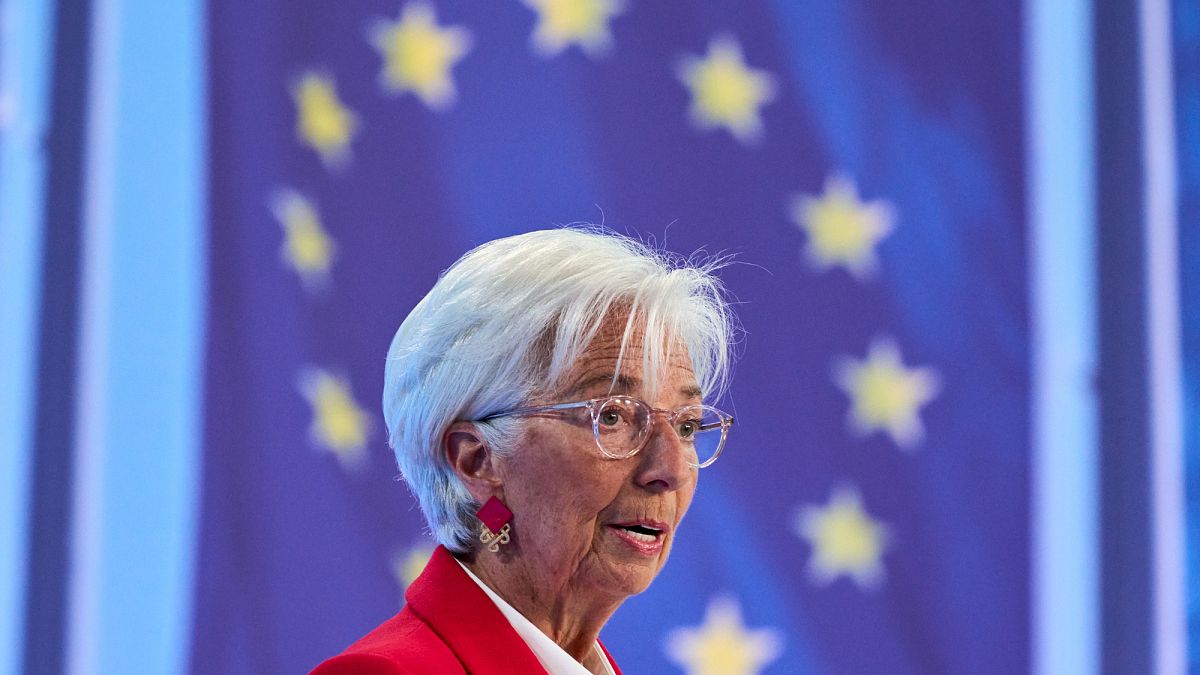Published on •Updated
Annual inflation in the eurozone edged back to 2% in June, marking the first rise seen since January and reinforcing the European Central Bank’s (ECB) cautious stance as it navigates the final leg of its disinflation campaign.
According to a flash estimate from Eurostat released on Tuesday, consumer prices rose by 2% year-on-year, up from 1.9% in May, in line with economists’ expectations.
On a monthly basis, inflation accelerated to 0.3%, from a flat reading the previous month.
Core inflation — which excludes volatile items such as food and energy — remained steady at 2.3% annually and rose 0.4% on the month, highlighting persistent underlying price pressures, particularly in services.
Services inflation, a key focus for the ECB, rose to 3.3% in June from 3.2% in May, and jumped by 0.7% month-on-month, suggesting lingering demand-driven inflationary dynamics as the summer begins.
Among the main inflation components, energy prices remained at -2.7%, though this marked a moderation from May’s -3.6%.
Food, alcohol and tobacco inflation slowed marginally to 3.1%, while non-energy industrial goods posted a 0.5% annual increase.
At the country level, Estonia recorded the highest annual inflation rate at 5.2%, followed by Slovakia (4.6%) and Croatia (4.4%). France (0.8%) and Cyprus (0.5%) had the lowest rates. Monthly inflation was strongest in Greece, up 1.3%, while Finland was the only member state to record a price contraction at -0.2%.
Lagarde: “Our work is not done”
Speaking at the ECB Forum on Central Banking in Sintra, Portugal, ECB President Christine Lagarde reaffirmed the central bank’s commitment to price stability.
“Much of the policy challenge over the last few years has involved stabilising inflation while facing fundamental uncertainty about the economy,” Lagarde said in her keynote address on Monday.
Inflation, she noted, had peaked higher than in previous soft-landing episodes, but also decelerated more rapidly. Growth, while muted, remained within the historical range, and the labour market proved “exceptionally benign”.
Yet the path ahead remains fraught with uncertainty. Lagarde pointed to unresolved questions around the evolving dynamics of wages, profits and productivity, and warned that potential supply-side shocks could still derail progress.
“It will take time for us to gather sufficient data to be certain that the risks of above-target inflation have passed,” she said. “Our work is not done, and we need to remain vigilant.”
Echoing football legend Sir Bobby Robson, Lagarde concluded: “We will not rest until the match is won and inflation is back at 2%.”
Euro breaks above 1.18 against dollar
The euro held firm at $1.18, its highest level since September 2021, and is poised for a tenth consecutive session of gains — a streak not seen since 2003.
The single currency has gained almost 14% year-to-date, on pace for its strongest year in more than two decades.
Equity markets showed mild weakness in mid-morning trading.
The Euro Stoxx 50 index fell 0.15%, weighed down by declines in Saint-Gobain (-1.7%), Deutsche Bank (-1.6%) and Mercedes-Benz (-1.4%).
On the upside, Adidas and LVMH gained 2.7% and 2.4%, respectively.
National indices also slipped, with Germany’s DAX down 0.2%, France’s CAC 40 off 0.4% and Italy’s FTSE MIB retreating 0.6%.

